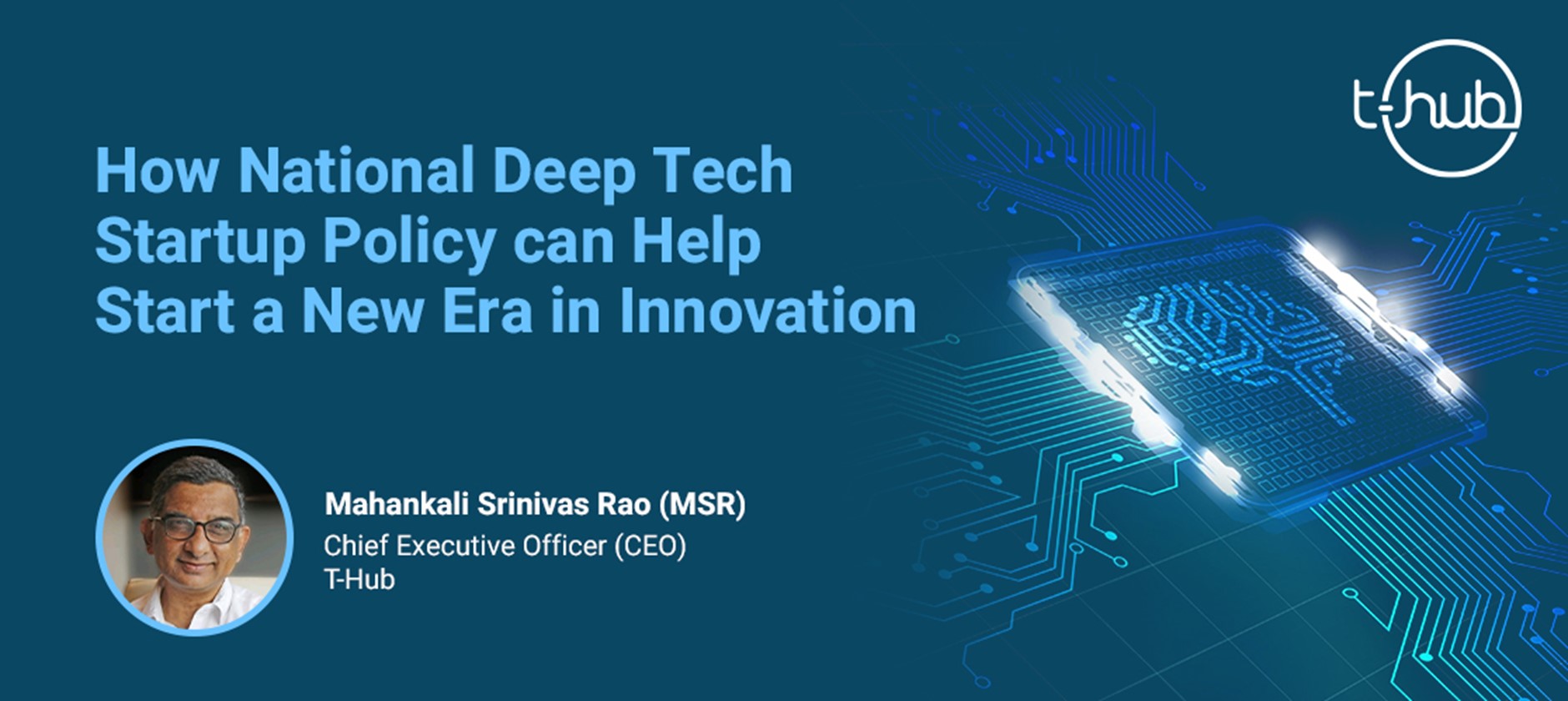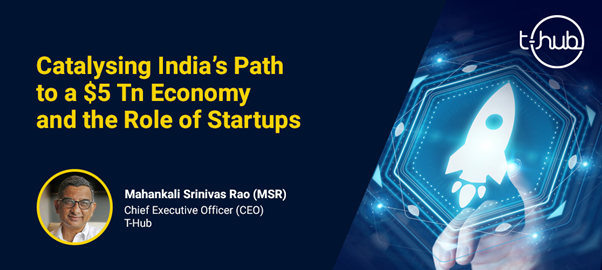Deep tech startup policy
India is the third-largest startup ecosystem in the world in the ever-evolving and disruptive landscape of technology. The country is home to over 3000 deep-tech startups whose business models are centred on high-tech innovations or scientific advancements in areas like AI/ML, big data analytics, IoT, blockchain and more. These startups are venturing into fields, such as agriculture, life sciences, chemistry, aerospace and green energy, promising to reshape industries with their creative, novel technology solutions. The potential of the deep-tech sector is immense, with the capability to contribute $450 to $500 billion to India’s economy by 2025.
However, until recently, there was a lack of a cohesive ecosystem that could foster the growth of these emerging technology solutions in the country. While corporate and government R&D budgets were not up to par, the narrative is set to change. The National Deep Tech Startup Policy (NDTSP) is a transformative initiative by the Government of India (GoI) designed to steer innovation, drive economic growth and encourage societal development. The policy offers a comprehensive approach to invigorate India’s deep tech landscape.
Developing a policy for all the startup ecosystem players
The benefits of the NDTSP extend far beyond the corporate sector. Academia and the government have critical roles to play in this next phase of technological evolution. Academia holds the potential to drive Research and Development (R&D) efforts while concurrently nurturing the skill sets required to navigate this cutting-edge landscape. At the same time, government institutions can tap into the power of deep tech solutions to catalyse economic, financial and social transformations. The NDTSP envisions an enhanced collaboration between academia and industry. Government-backed funding initiatives and collaborative platforms serve as incubators for fresh ideas and real-world applications. It has the potential to foster a symbiotic relationship between researchers and entrepreneurs.
The Indian deep tech startup ecosystem is nascent, but it has demonstrated remarkable growth, achieving an impressive Compound Annual Growth Rate (CAGR) of over 40 per cent in the last four years. The thriving arena is where corporate giants and agile startups often collaborate to solve real- world business challenges in domains spanning AI, Big Data, Blockchain, Drones, 3D Printing, Augmented Reality (AR), Virtual Reality (VR), Internet of Things (IoT) and more.
AI-based solutions are adopted across diverse sectors in India, including enterprise technology, HR tech, health tech, fintech and edtech. Advancements in IoT have profound applications in industrial automation, building smart cities and precision agriculture, leading to a more interconnected and efficient India.

Stimulating research and development
Central to the NDTSP is the initiative to stimulate investment in research and development through the establishment of a ‘fund of funds’ mechanism supported by patient capital. The initiative ranges from fundamental research to applied research, fostering the creation of innovative deep-tech products and services.
The policy aims to nurture innovation by providing incentives, such as tax breaks for startups and encouraging venture capital investments. At present investors receive a total tax exemption on startup investments in India, but there is room for improvement. For instance, Israel offers a tax break for investments in an R&D company while the UK provides tax relief and capital gains tax exemptions. Ensuring a secure foundation for innovation in India also
involves safeguarding intellectual property through patents.
Cultivating a skilled workforce
Re-skilling takes centre-stage in the policy narrative, aiming at cultivating a workforce capable of navigating deep tech. By empowering individuals with competencies in computer science, engineering, mathematics and other relevant disciplines, the policy intends to address the skill gap and encourage
a new wave of innovators.
The policy extends its reach to global partners, attracting foreign investments by streamlining the process for foreign companies to establish a presence within India. The incentives will make India a preferred destination for international players.
Strategic clustering of deep tech ventures is a key component of the NDTSP. These technological hubs, housing deep tech enterprises, research institutions and stakeholders, foster a collaborative ecosystem that nurtures shared resources and economies of scale, creating a thriving community.

Addressing social challenges
As India strives towards a $5 trillion economy, this policy has the potential to foster a culture of innovation among entrepreneurs and startup ecosystems in states like Telangana. Deep tech is poised to be a powerful tool in addressing social challenges, from poverty alleviation to climate change mitigation and revolutionising healthcare accessibility. The policy aims to make the benefits of deep tech accessible to all levels of society, democratising the potential
for positive transformation.
Building a dynamic deep tech landscape requires a policy that can be continually updated and can evolve with the technology shifts. Encouraging a culture of innovation, it urges individuals to be creative, take risks and learn from failures. The policy highlights how innovation leads to growth and prosperity. Through a strategic blend of research, collaboration, education and focused action, India is ready to navigate a new era of innovation.







